Uluslararası Geçmişten Günümüze Tekirdağ’da Dinî ve Kültürel Hayat Sempozyumu, 5-7 Nisan 2019, Tekirdağ, Türkiye.
International Symposium From Past to Present Religious and Cultural Life in Tekirdag, 05.04.2019, Tekirdag, Turkey.
More...We kindly inform you that, as long as the subject affiliation of our 300.000+ articles is in progress, you might get unsufficient or no results on your third level or second level search. In this case, please broaden your search criteria.
International Symposium From Past to Present Religious and Cultural Life in Tekirdag, 05.04.2019, Tekirdag, Turkey.
More...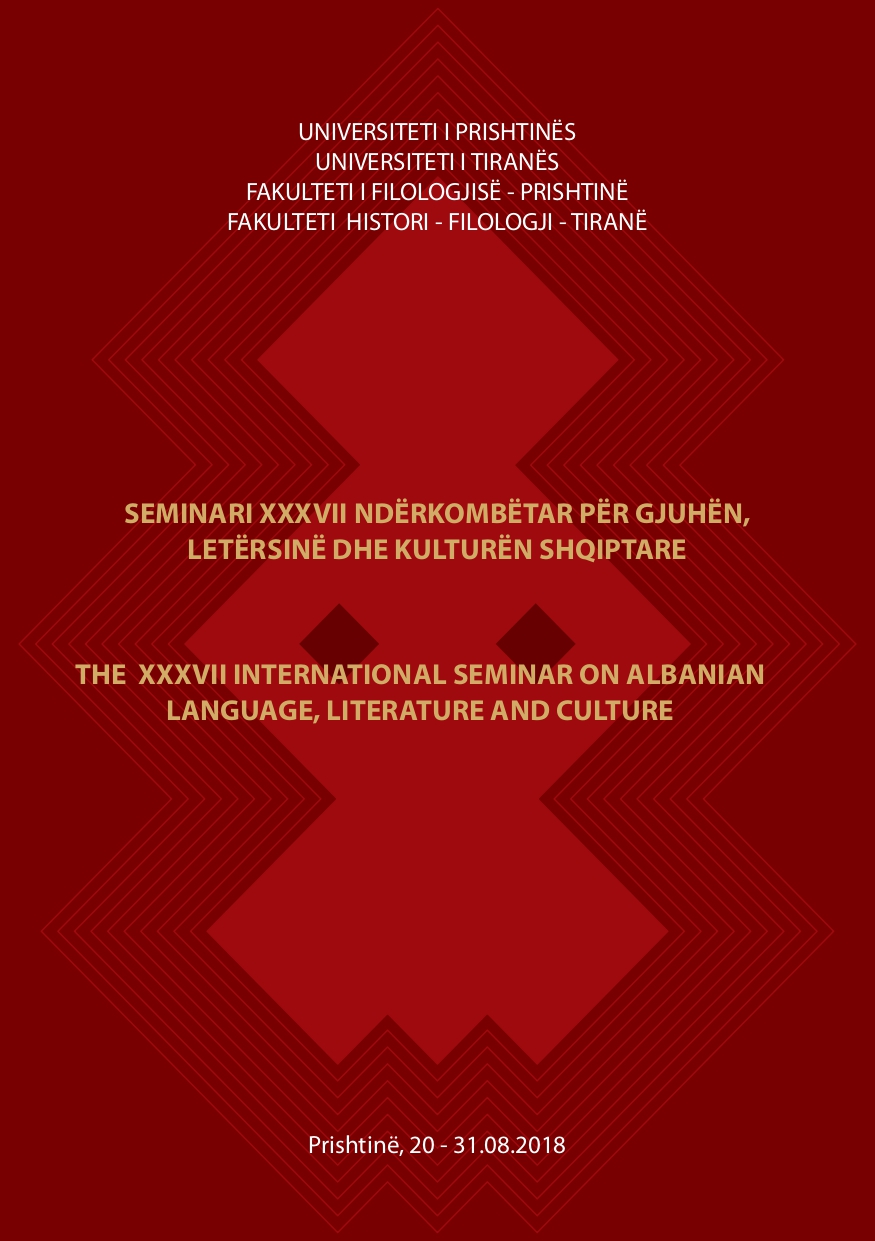
The Albanian language is considered one of the fundamental elements of Albanian identity. On its base was arose the hole process of the national awareness process during Rilindja Kombëtare (Renaissance). But the situation of Albanian emigrants nowadays in Italy of the second-generation shows us a fragile identity. Facing the strong racial discrimination at the beginning of the 1990s, thanks to the ‘Albanian’ myth created by the media, marked the beginning of the process of devaluation or concealment of the identity among emigrants, which brought Albanian language into a fast-track assimilation process. The fact that the Albanian emigration has not been interrupted suggests an economic, social and political instability in the country, which makes Albania not yet a desirable place to live for emigrants, even in the future. This is another important factor that helps the linguistic assimilation process and the transformation of the identity.
More...
Starting from the axis theme: Albanian diaspora, we thought that the object of our work was to study dialects of the new diaspora, which was removed after the 90s for historical and economic reasons that are already known. We have tried to investigate and interpret language and extraneous factors influencing the development of language in second generation children, with the main purpose of their linguistic conscience and the developments that undergo it.We have considered the discourses of different age groups, who were born and raised outside the Albanian lands, but with two Albanian parents. They speak a mock-and-swallow language of the massive influence of English as a result of the school and mass media, such as television, computers, and so on. Interest has shown us the lexicon they carry on themselves, but also the morphological and syntax structures that we will notice in the recitation of the poems, the story of tales, their re-dating, and so on.According to a survey conducted in children (bilingual and trellis), we have come to the conclusion that the speech of these children is clear and understandable considering the age and duration of their contact with the Albanian. Both are able to read well the text, where the use of foreign accent (Italian and English) and difficult reading of some derivative and composite words are highlighted. It is known that bilingual children, trels have difficulty setting the boundary between two (three) language systems they use. So in many cases use language expressions or lexical units in contact without being aware of it. They try to be conscious in the expression of thought, but we also encounter language slips in some forms, as a result of learning a communication language. As the second generation they are, they speak a clear Albanian language and we hope that they will inherit their beautiful Albanian language in their children. For this reason, language strategies should be developed in the entire Albanian territory for the preservation of heritage from generation to generation.
More...
This speech brings arguments that the difficult historic and political conditions where Albanians have lived, especially, in Çameria, from Konispol to Prevezë, the oral folkloric composition, made possible that the Albanian language to be spoken and be developed in the level of spoken language, but also to be preserved from assimilation by the Greek language. Arvanit Diaspora, otherwise, the Arber settlements that from the XVI century or earlier in entre island Greece and historically the Albanian population within the Greed stare, have had their share of troubled history. In these known conditions, the folklore created for centuries, songs of the rites and important ceremonies of Albanian traditional life, together with folk narrations, have played an important role in preserving the beautiful Albanian word, striking expressions, quotes, simple and natural figuration, generated and smoothed down through time from born speakers of the mother language. In this speech, we will try to highlight that the Albanian word, at the folkloric texts, came clean, stricken and the unit-sentences and phrases are forwarded according to the syntax of verse, that differs from that of prose. The conception of many folk songs and their delivery, states that it knew a free usage climate during the period of Pashallëk of Janina, when, according to the historians of the court of Ali Pasha coexisted the Greek illuminist movement and the spiritual resurrection of Albanians.
More...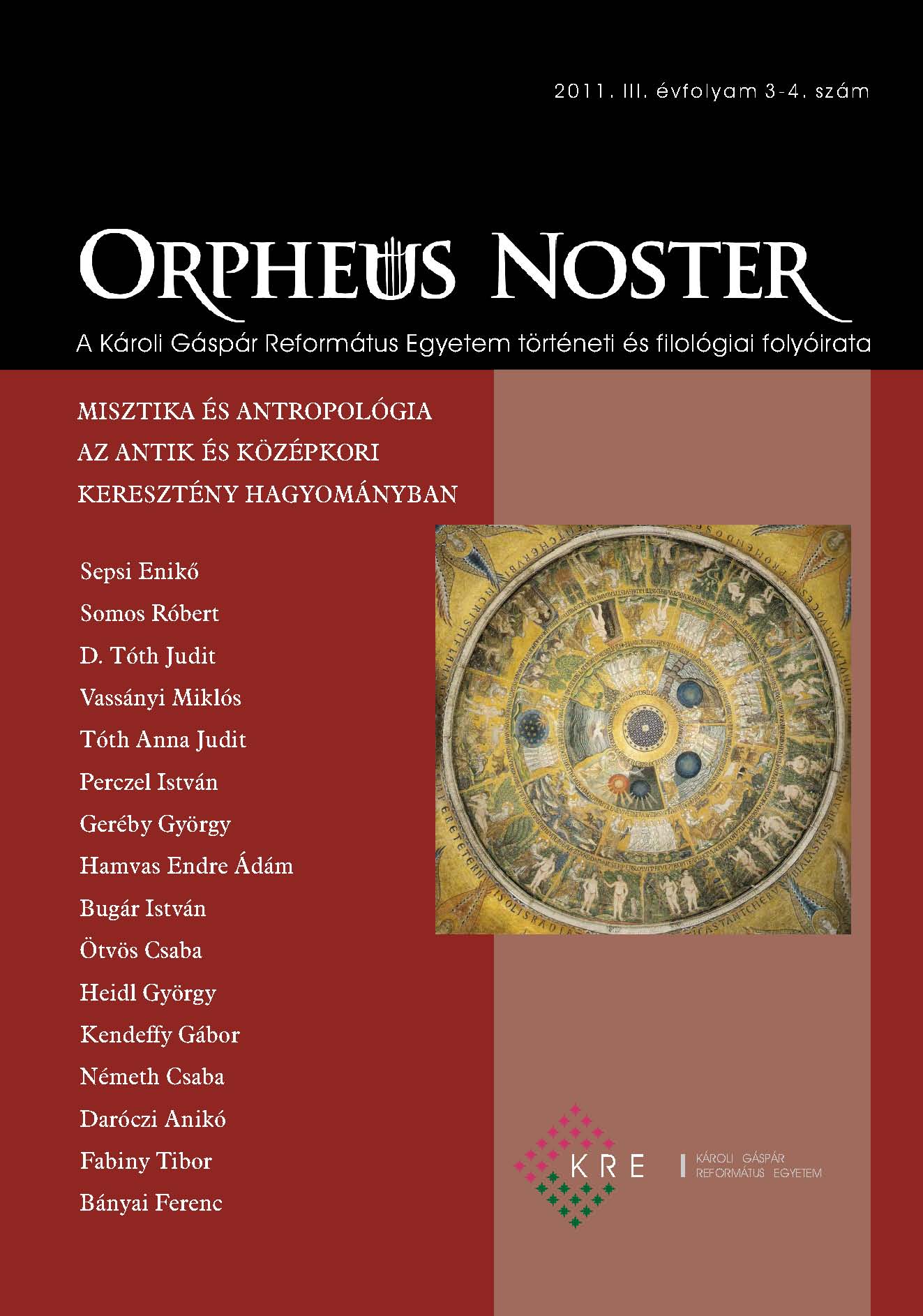
The presupposition of the present study is that cognitive metaphors are necessary tools of rea resupposition of the present study is that cognitive metaphors are necessary tools of reasoning both in religion and philosophy and that their function is to understand ideas and theories easier. Furthermore, such metaphors are used in everyday life by laymen, not only by the clergy. In this paper, we focus on the conceptual character of In this paper, we focus on the conceptual character of metaphors in the vernacular ser- metaphors in the vernacular ser metaphors in the vernacular sermons and tractates of Eckhart, since his mystical teaching was based on cognitive metaphors. We think that the consequent use of metaphoric systems helped him to develop his markedly original philosophy and theology. When he used metaphors, his targets were the conceptual domains containing ideas on God, the human soul and the unio mystica, which Eckhart tried to explain through metaphors from a source domain referring to light, the Sun, fire and heat. By way of metaphoric expressions as “light is life and knowledge and virtue,” or “seeing is understanding,” we can identify some of his main theses. His key-metaphor, “the spark of the soul” is closely connected to his favorite themes. This “spark” in the very heart of the soul makes possible a genuine knowledge of the soul’s noble nature, enables us to conduct a righteous way of life and even to reach the union with God. This takes place when human beings liberate them- liberate themselves from themselves as mere creatures, and in this way find that which transcends them.
More...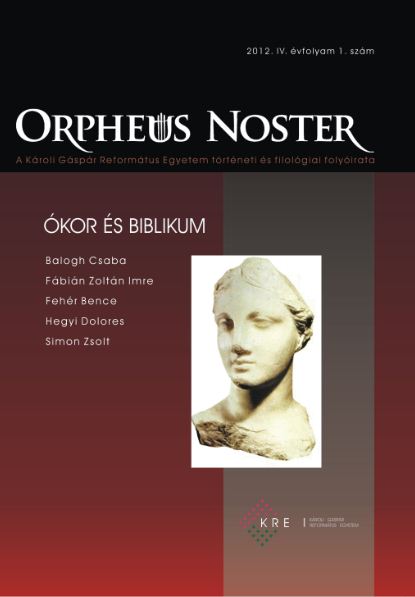
Isaiah 19,16-25 is an intriguing text in the Old Testament with a generous view on non-Israelite nations. The open-hearted universalism of this passage is often brought in connection with the eschatological expectations of the Israelite community in the Persian or Hellenistic periods. However, a closer analysis of some particular details of this text (vv. 18, 19 and 23) reveals that the picture of the future in Isa 19,16-25 is more deeply rooted in (pre-exilic) history than previously thought. This view of the future, expressed in thoroughly historical terms, shows profound awareness of the Assyrian view of the world. YHWH, the God of Israel, exerts his dominion in an indirect manner, by means of the great power of the prophet’s era, Assyria, the creation of YHWH’s hands (v. 25), to whom Egypt with all other nations is subdued (v. 23). The text has close connections with the history of the 7th century B.C., especially the era of King Manasseh of Judah, who—to believe the testimony of non-biblical texts—was actively engaged in shaping the co-ordinates and defining the power zones of a world under Assyrian control.
More...
The shape of Albanian verbs borrowed from Slavic usually depends on the Sl. infinitive form (Sl. * ati → Alb. at ; Sl. * iti → Alb. it ). Thus, it is surprising that the element it is also visible in some Alb. verbs whose Sl. source does not feature an infinitive in * iti. In this study, it is argued that some such verbs (e.g. venit(em) ‘wane’, mahnit(em) ‘astound’) could have been borrowed from a Sl. dialect where the respective source verbs had an infinitive in * nyti (*vę(d)nyti ‘wane’, *maxnyti ‘swing’; cf. e.g. Slovenian vę́niti, máhniti) rather than * nǫti, as in most Slavic languages (*vę(d)nǫti, *maxnǫti‘swing’; cf. e.g. Serbian vènuti, máhnuti); cf. the study by Andersen (1999). The Sl. vowel *y regularly appears as i in Alb. borrowings, so that a Sl. infinitive in * nyti can be expected to yield an Alb. verbal type in ¬ nit¬ . Through a mechanism of proportional analogy, the it type could then also spread to some other verbs borrowed from Sl. (e.g. pjetit ‘braid’, bodit ‘stab’). Interestingly, at present, no Sl. dialects of the * nyti type are known from the area bordering Albanian. Thus, the hypothesis has interesting implications for Sl. dialect geography, as it would suggest that dialects of the * nyti type used to be present further south in comparison with their present range.
More...
In more than two decades the Albanian language is faced with some rapid changes, which areas a result from outside linguistics factors, and affect directly in the way of perception of Albania language from the Albanians speakers. One of the groups persons that are likely to transmit more fast to the reader, with faster frequency in Albania language are journalists,especially journalists online media. This comes as a result of some factors.Firstly, online newspaper are dominant in the trade and convincinglymany in numbers.Second, it seemed that most of the Albanians speakers dispose more than one connection way with online newspapers, are more achievable by the Albanians speakers and more often readable by them, as a result they have a great influence.Third, taking informations through online newspapers is more feasiblein record time from the time that occurrence the event, and the way of distribution in a very little time reaches a number sufficiently high readers.Fourth, the access at online media information is possible every moment of the day where the only condition to be completed is to have internet connection.One of the issues that I have noticed and it is seemed to me interesting to be study recently is that, semantics that conduct through the way of construction of the information tittle, in online newspaper, there is no connections at all with semantics or the events that described or elaborated in the text of the informations.Taking into considerations all the reasons of the list above, which they bring us in the conclusions that online mediaand the way or accuracy of conductions of the informations affect directly and have a great affections to the Albanians speakers, so even this form of tittle constructions affect powerful to the readers.During the studies is noticed that this trend to decide a “bombastic” tittle without much connections with the informations has taken a wide extensionin all online newspaper. For this reasonthe evolving of this phenomenon , listing the reasons, the factors which brings this phenomenon and it’s consequencesat the readers, has led in the interesting conclusions
More...
The Greek-Arvanitika-Albanian Dictionary of Panajot Kupitori was composed around 1870-1880 and it was published in Athens, in 2006, by the researcher Titos Jochalas. In a previous study (Qirjazi 2013) we had pointed out the great lexical wealth of the Albanian which remains hidden in the interpretive part of the lemmas in the Kupitori’s dictionary and also, we had mentioned some aspects on the temporal stratification (the ‘fjalë plaka’/old words and the ‘fjalë nuse’/neologisms) and its’ spatial expansion (words from the Arvanitika dialect of Hidra and some other Albanian dialects). The composition of its’ reverse Albanian-Avanitika-Greek form is a part of a project for the preparation of a dictionary of the Arvanitika dialects in Greece and it began as a master thesis of the postgraduate student E. Bilali under the guidance of As. Prof. Dh. Q. Qirjazi. With this paper we will share our experience so far on the subject and we will describe some of our criteria and the directions we will follow in the future on this project.
More...
In this paper we aimed to make a summary of the borrowings that were entered in the Albanian language recently. Therefore, much of the study is about the loans that were entered after the '99 in the official document of the Pre-university Curriculum of the Republic of Kosovo. The push for the selection of this topic has been the daily recording of unnecessary borroëings in education documents approved by MEST and the daily communication in educational institutions. The identification of foreign words is made from official documents of the Pre-university Education Frameëork of the Republic of Kosovo and the core curriculum of pre-university education, from everyday communication in educational institutions as well as from communication in print and electronic media in Kosovo. In this study, we have also observed the development that loan words have experienced over the last two decades, which have created other words, which have not been further developed, and which are entered as new. On the other hand, we have noted the languages of the foreign words that have entered much more, how did the Albanian language react to them, what factors favor the addition of foreign words to Albanian and the ways we can track to minimize new entries and the replacement of existing borrowings, the viewpoints of the linguists towards borrowings, and some fields where the borrowings have entered. We have also compared the borrowings in Albanian language by observing how they were reflected in the dictionaries of 1954, 1980, 2000, and 2006, and we grouped in by giving explanations about the their presence or not in each dictionary.
More...
The fundamental principle of the Albanian spelling is proclaimed as phonetic principle: words are spelled the same way as pronounced. But changes of spelling phenomena towards those of pronouncing, particularly the positions of the unstressed vowel ë as: pre-stressed ë, post-stressed ë and final ë do not prove equality between these two different principles’ systems.The aim of this paper is to investigate the distribution of sounds in Albanian language, to see if the sound distribution corresponds with the distribution of graphic letters in written language, and if the spelling determines pronunciation. The non-literary argumentative text of Robert C. Austin “Fan Noli dhe një revolucion i ikur” (Demokracia shqiptare në vitet 1920-1924) served as a corpus for distribution of the letters. The sounding distribution of pronunciation variants among speakers is transcripted according to the system “International Phonetic Alphabet” (IPA). The speakers are recorded by using voice recorder in “smartphone”: the speaker I was born in Gjakova, lives in Tirana; speaker II was born in Gjakova (originally coming from Plançor village of Gjakova), lives in Prishtina; speaker III was born in Berat, lives in Tirana; speaker IV was born in Tirana, lives in Tirana. During the phonetic interpretation, in the transcription analysis have emerged various alternatives among the speakers, distinguishing pairs of words by length, quality of vowels etc.Therefore, the substance of the paper is the issue of unstressed vowel ë, in all three pronunciation positions: pre-stressed ë, post-stressed ë and final ë, distribution of which will include quantitative calculated reports as well as their changes that receive different amounts according to difference of pronunciation variants of speakers – two Albanians of Kosova and two Albanians of Albania.
More...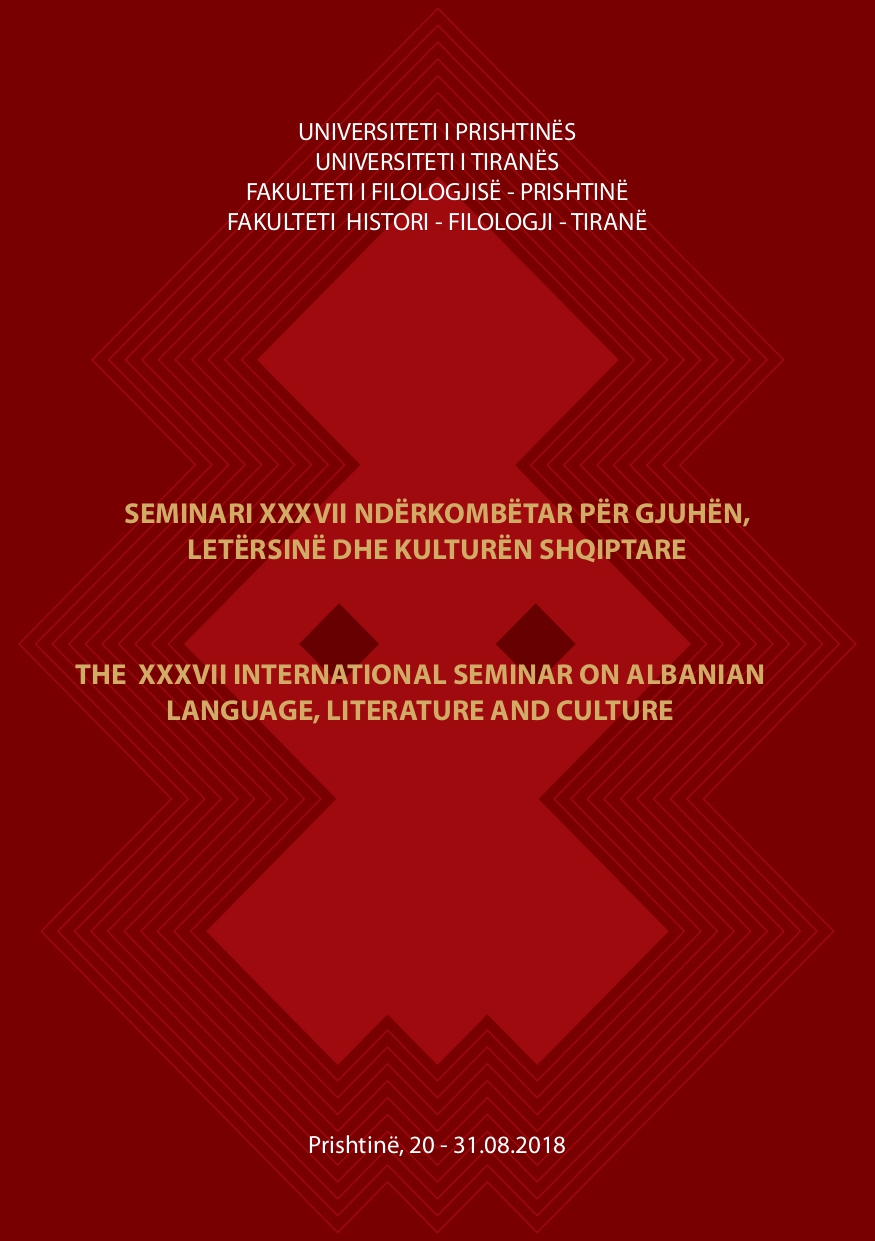
The Other, as an independent and neutral existence, in essence constitutes the purest and most important conceivable form of disparity. In the absence of this, they interfere with the conjunctive forms of the enemy, the foreigner, and the stranger. A national literature can impact the emancipation of its own public only if it succeeds in overcoming unconventional non-conformational appearances and stabilize a certain perception of the other such as a person.We will try to sketch such a phenomenology, in two directions: in relation to the narrator and the internal relation between the characters.Phenomenology will have a critical perspective, based on the premise that the presence of the other in itself, in the Albanian literature is deficient.
More...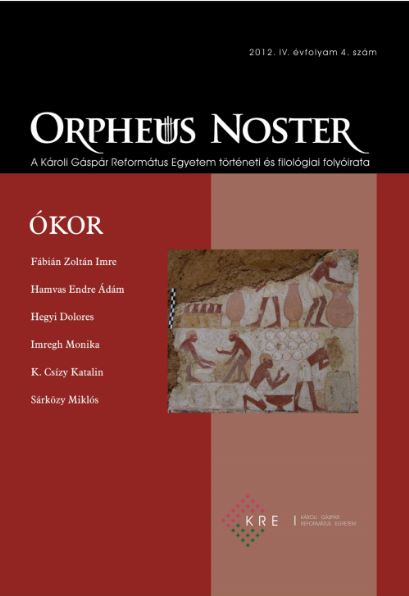
Based on scanty informations, our knowledge of Sasanian education system, its theoretic background and ideals are quite fragmentary and limited. However, on the basis of some Pahlavi (Middle-Persian) books it is possible to characterize some peculiarities of late Antique and Early Medieval Pre-Islamic educational system of the Sasanian Empire. As for the educational theories in Sasanian Iran one of the most valuable sources is the Xusraw ī Kawādān ud rēdag-ē a source which contains extremely rich material for the study of Sasanian court life right before the Arab conquest. The introducing chapters of this treatise of Sasanian worldly culture shortly describe the degrees of curriculum in sciences and sports for young Sasanian noblemen. According to this brief description one can see a complete educational theory consisting of three main elements: the study of Zoroastrian religious holy scripts (including rhetorics and calligraphy), excellence in hunting and military sports as well as showing advanced skill in music and various board games. The author tries to demonstrate that the same tripartite educational sytem can be found in other Pahlavi and Early Islamic sources. In this way we can say that the chapter describing the Sasanian educational theory in the Xusraw ī Kawādān ud rēdag-ē albeit a mere abbreviation of longer texts has a transitional place between Past and Future both unifying older Ancient Near Eastern traditions and foreshadowing later Islamic educational achievements.
More...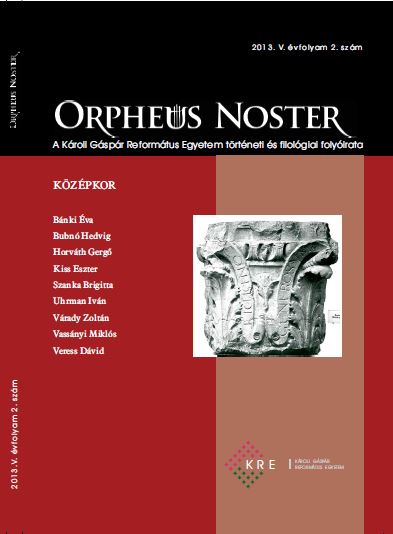
Le courtois et le vilain (vilan) forment un antagonisme définitionnel de la culture courtoise et en général de la poésie du fin amor. Mais existe-t-il une valeur qui déconfit cette opposition d’apparence inébranlable? Dès les débuts, la culture courtoise avait certainement cette particularité de reconnaître ses propres limites. Alphonse le Sage, qui écrit un siècle et demi après Guillaume de Poitiers, renie toute la culture chevaleresque, sans toutefois s’identifier à la vilania, à la condition des vilains. Le poème d’Alphonse le Sage est un véritable hapax dans la poésie galégo-portugaise: ni la forme, ni le contraste des champs temporels, ni le motif du scorpion qui donne le squelette du texte n’a d’autres exemples dans la lyrique galégo-portugaise. Et non seulement dans la lyrique galégo-portugaise, mais en général dans la poésie des troubadours. Dans le poème du roi Alphonse, la vie du marchand ne semble pas trop élevée, elle présente toutefois une alternative réelle vis-à-vis les peines de la vie chevaleresque.
More...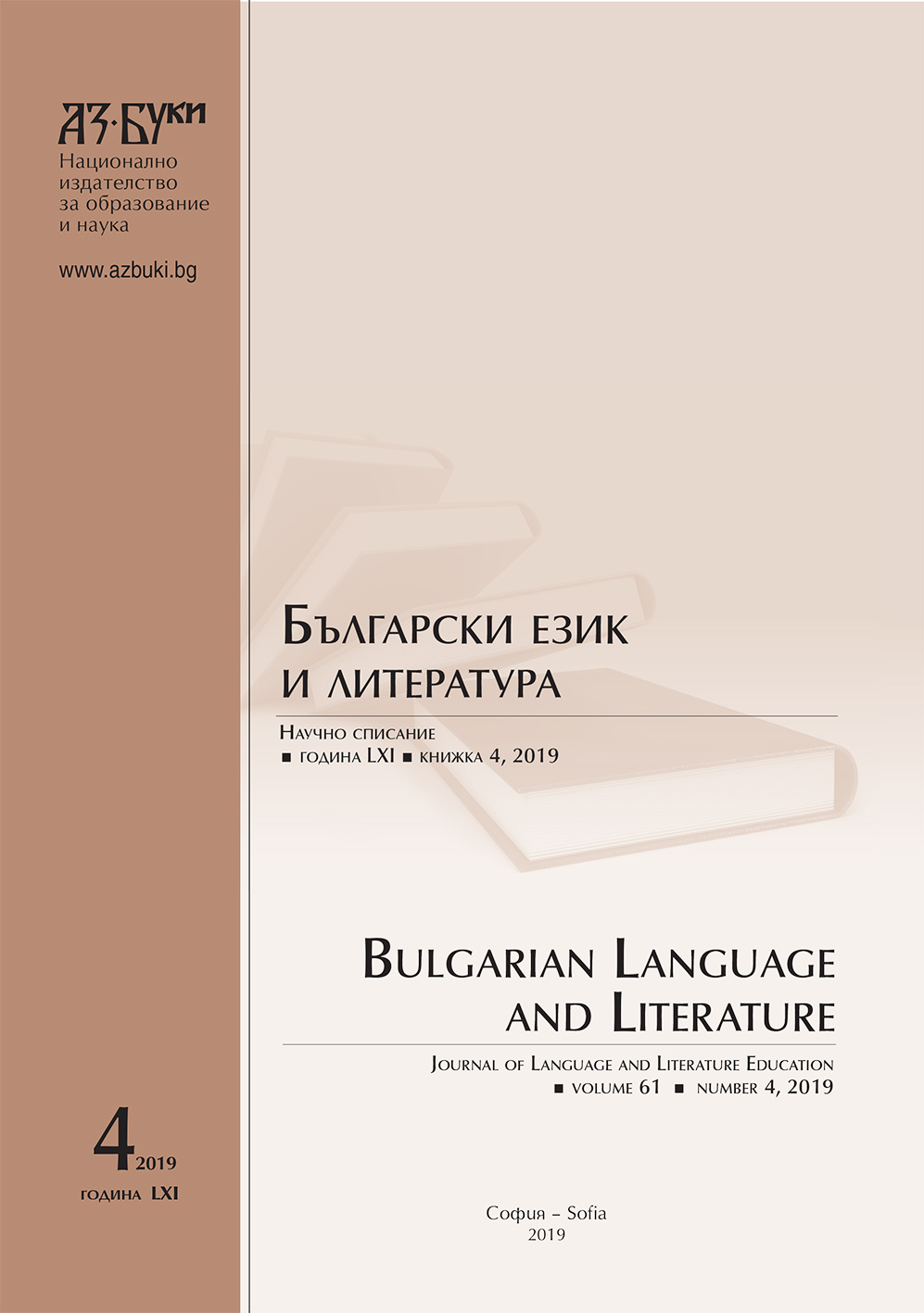
We analyze the language-internal variation in the class of dative predicatives in Bulgarian and Russian. For each language, a test questionnaire is prepared. The stimuli are grouped into 15 thematic classes for Russian and 19 thematic classes for Bulgarian and tested on native speakers. Their responses provide a sample of stimuli ranked according to the approval rate. The same set of stimuli is tested on Russian National Corpus and Bulgarian National Corpus, which provided the second ranked sample. The volume and structure of the class of dative predicatives is established by the ratio of these ranked samples.
More...
The article describes the challenges currently relevant to the Bulgarian anthroponymic system. It successively examines the three components of the contemporary anthroponymic system – personal, patronymic, and family names. First, we focus on the problems associated with personal names, by analyzing the latest choosing trends for newborn children’s names. We compare data from four cities: the capital Sofia, Blagoevgrad, Vidin, and Stara Zagora. We based our observations for Sofia on data from 2014, and used research from 2015 for the other cities. Special attention is given to the so-called “unique names”, e.g. names with single use, as they are indicative of the short-term development of the name system. The results show that there are similar tendencies in naming across the data from all four cities. Subsequently, we examine the present state of patronymic names. The latter are a characteristic of Bulgarian cultural tradition, as well as a significant element of our national identity. The observation of modern naming practices reveals surprising results. Presently, more and more people abandon traditional forms of father names, ending in -ov/-ev – the share of such instances in Sofia is almost 10%. Finally, we discuss problems related to the family names of contemporary Bulgarians. Special emphasis is given to the relationship of family names with the traditional kin names, typical of Bulgarians prior to the establishment of the three-component personal name system. The results of the analysis also show that there is a strong tendency to abandon tradition. Inherited names are replaced with new, rather impersonal and unified family names, usually derived from the grandfather’s personal name.
More...
On the focus of the comparative research are the linguistic means expressing presumptive semantics in Bulgarian and New Greek languages. The study has two main objectives: to highlight the question, related to the status of presumptive combinations with will-; to look for other linguistic means that express presumptive semantics in the compared languages. The article discusses the potential for fifth mood (presumptive) in Bulgarian language.It is noted also the possibility the presumptive forms to be peripheral modifiers for conclusive expression. In Greek linguistics the presumptive meaning is considered within the boundary of epistemic modality. Separate authors present a paradigm „potential mood“. The purpose of study is to acts of inter-language symmetry and asymmetry in the peripheral expression of presumptive meaning.
More...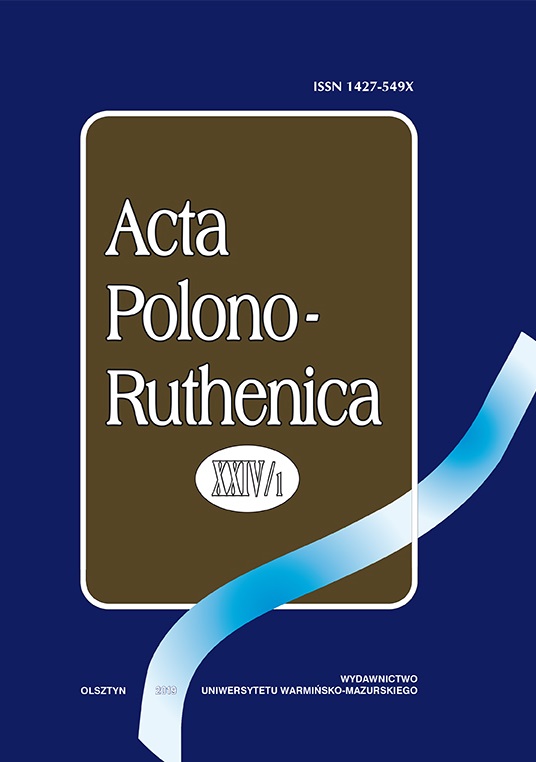
In this publication I discuss a 1927 article written by Elizaveta Skobtsova in which she pro-vided her programme of immediate and long-term remedial actions to be taken urgently by the Russian emigration community in order to mentally prepare for the fight against the evil residing at the Kremlin in Moscow. The author established specific initiatives, suggested their respective performers and deadlines. Some actions were meant to be taken individually, while others required organisational support in the form of seminar discussion groups. First as Elizaveta Skobtsova and later as Mother Maria, by means of setting her own example the Paris nun proved the accuracy of her attitude and the aptness of her assessment of the historical, political and religious situation of those days.
More...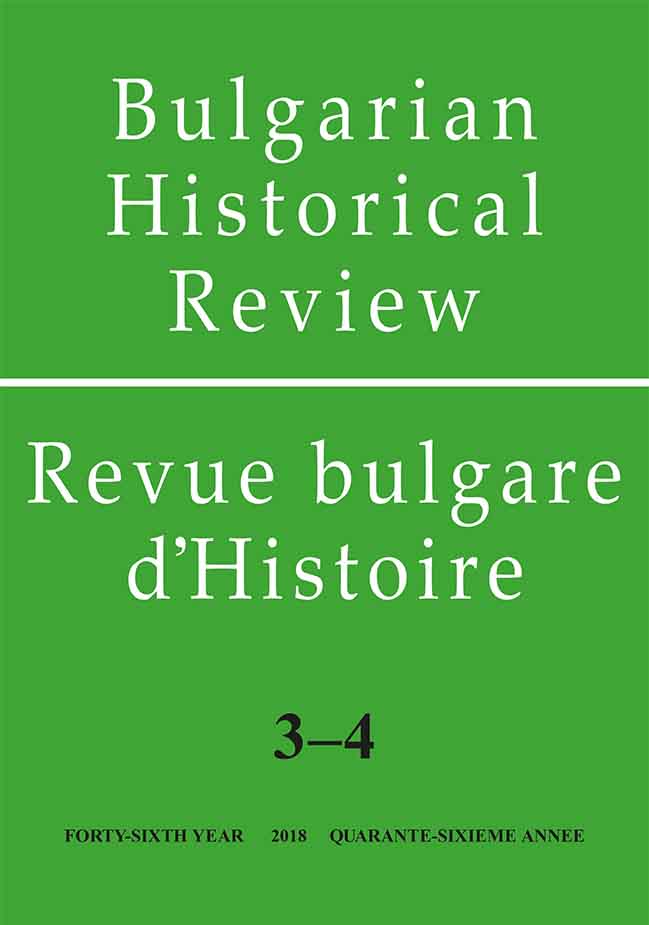
The paper deals with some methodological problems in literary history and searches for their analogues and connections in historiography. What defines a text as literature? What does literary history really examine? The centuries-old unity of Bulgarian literature – does it really exist and what are its boundaries in time and space? The paper questions some established notions about these topics and suggests that such questions and doubts are related to the historiography.
More...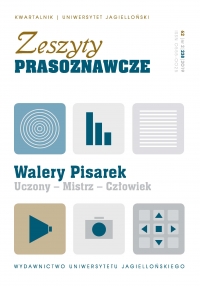
This article presents scientific achievements of Walery Pisarek, specialist on language, press, communication in the language of press. There are two perspectives presented in the article: bringing out problematic and methodological innovations considering historical context of selected publications (published as books) and presentation of the scientist’s propositions and bearing capacity. Continuation of themes and methods introduced into science by Walery Pisarek is visible in many books and articles of other researchers. His concepts are used in the way proposed in prototype, but also modified, adjusted to new language and media realties. Inspirations of Walery Pisarek’s works are observed especially in research on such issues ad: structure and form of the title, rhetoric in media, language culture in media, analysis of media content. Author’s textbook to teach communication and dictionary of media terminology edited by Professor are also commonly recalled.
More...